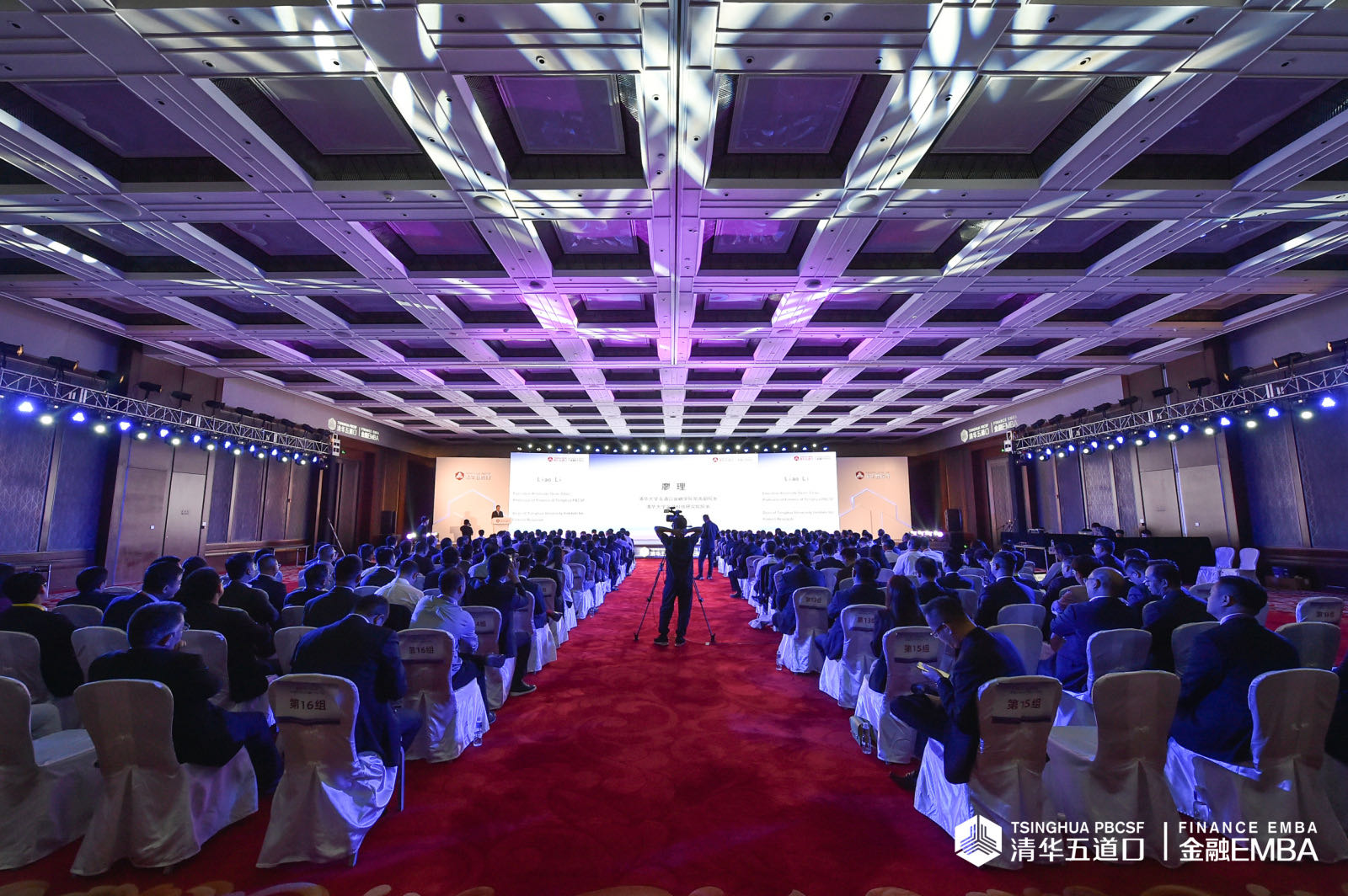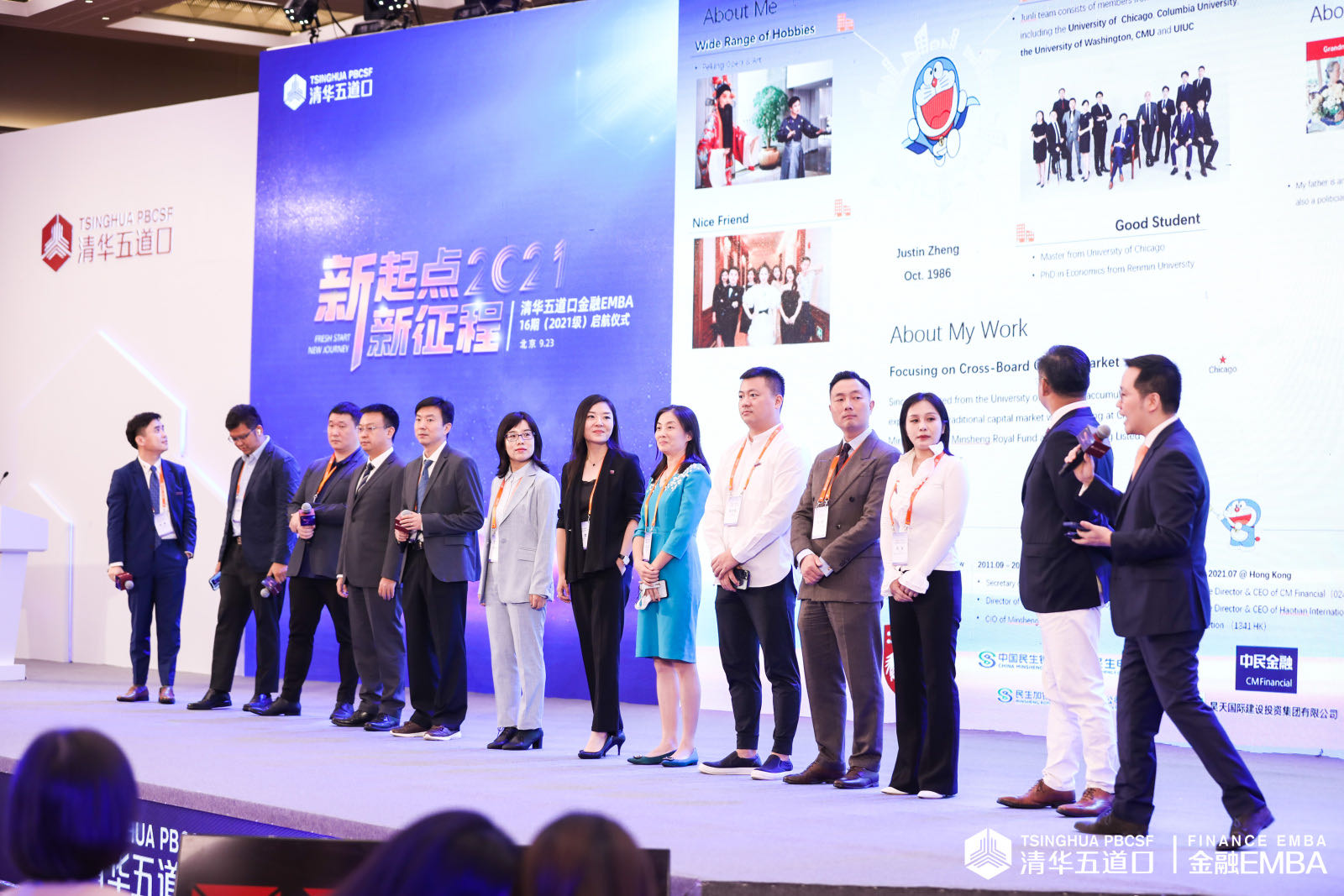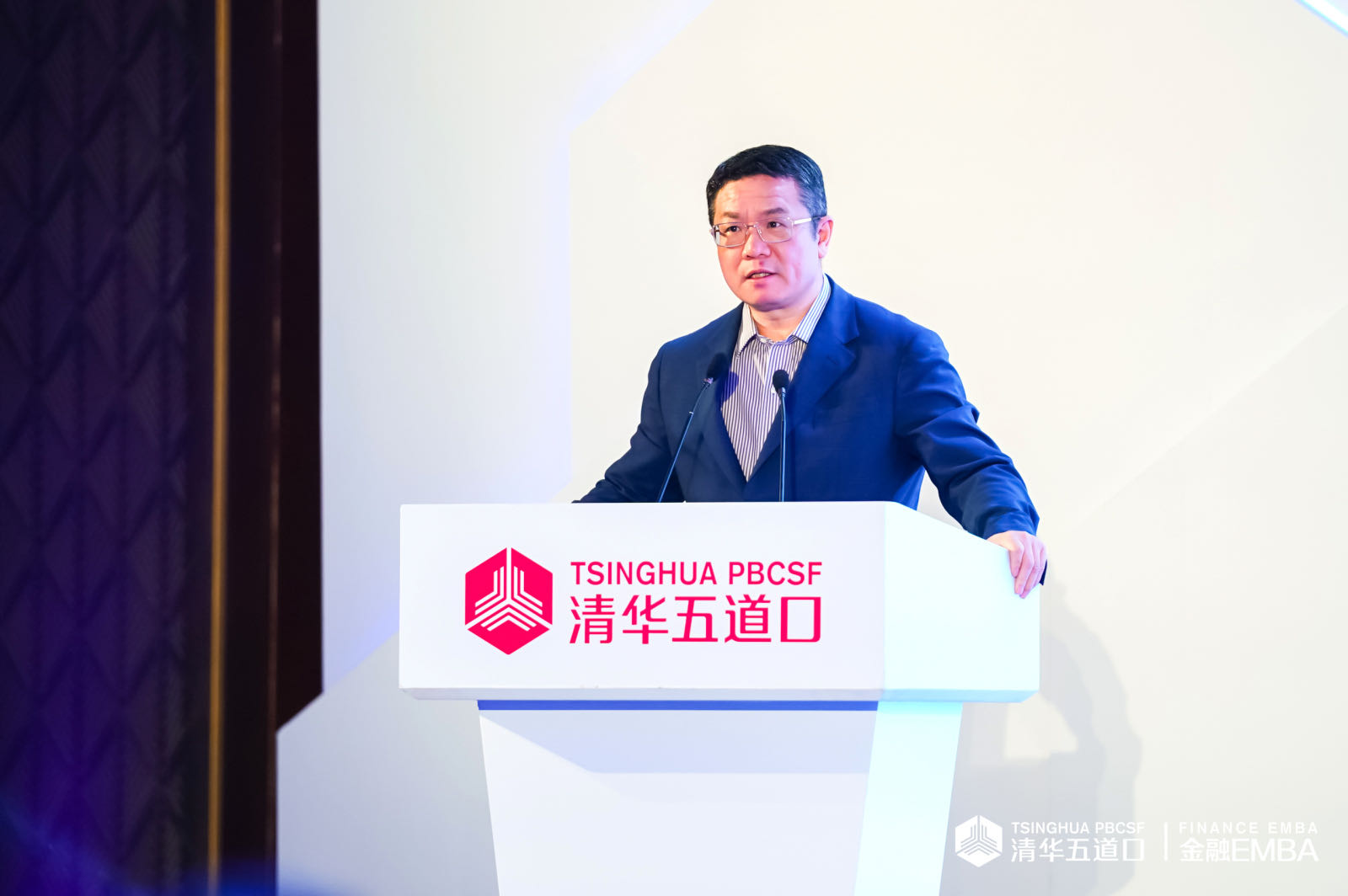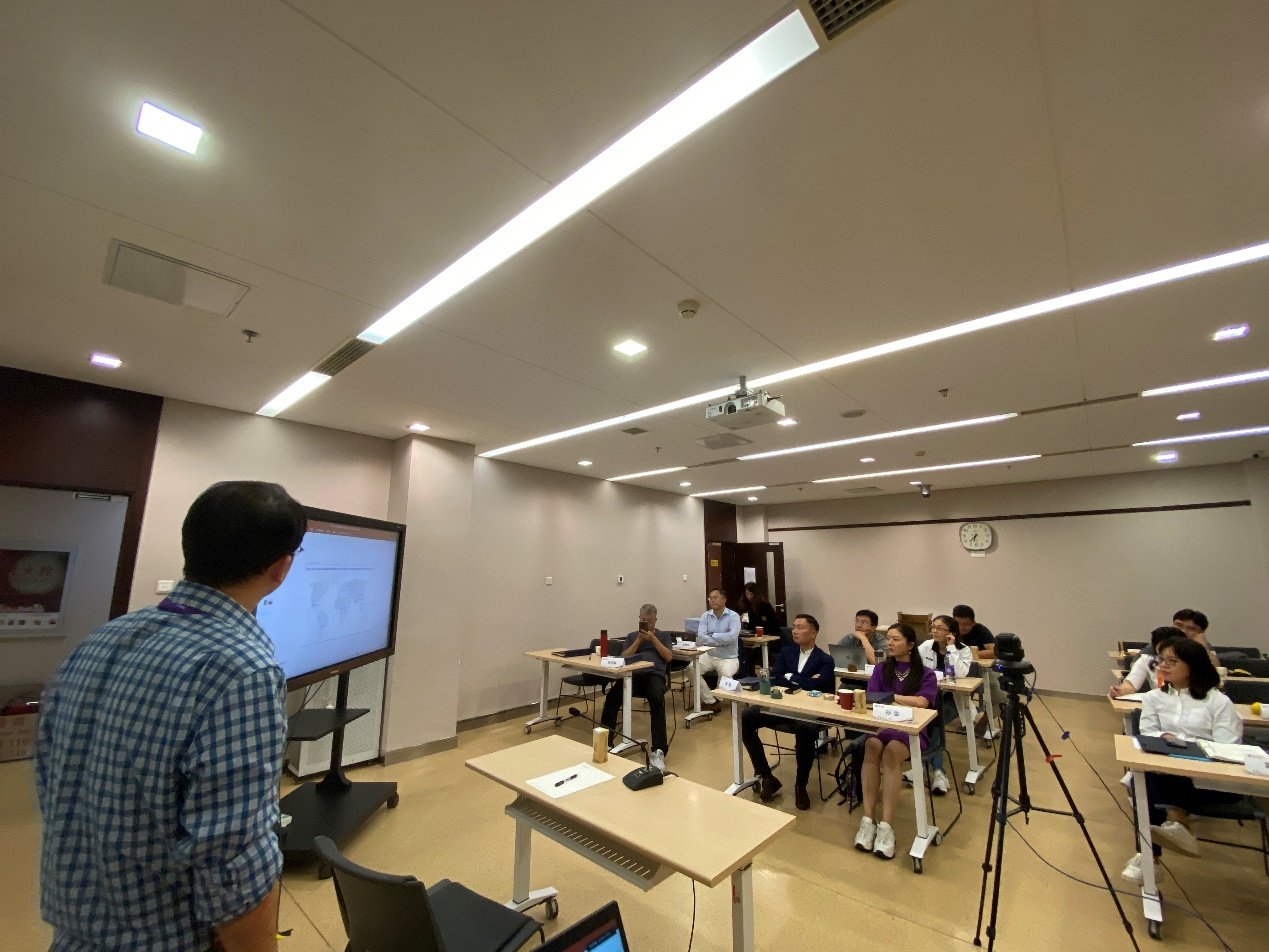The Opening Convocation of Tsinghua PBCSF BRI EMBA Class of 2021 was held on September 23, 2021 in Beijing. Thirty-four students from 13 countries and regions were admitted for Cohort 4. They began their brand-new study experience at PBCSF. Prof. Liao Li, Executive Associate Dean of Tsinghua PBCSF, attended the ceremony and delivered an opening speech.
 The Opening Convocation of Tsinghua PBCSF Finance EMBA Program
The Opening Convocation of Tsinghua PBCSF Finance EMBA Program
Tsinghua University is highly international. In recent years, in response to the national development strategy and the great changes and opportunities of building a first-class university, Tsinghua PBCSF is the first school in the nation to begin a comprehensive exploration and practice in the area of the Belt and Road Initiative, seeking to cultivate leading financial talents with an international vision and pioneering spirit under the Belt and Road Initiative.
Since the Program’s inception in 2017, the Belt and Road Initiative (BRI) EMBA Program has enrolled more than 200 students from 24 countries and regions, including China, Singapore, Malaysia, Indonesia, Vietnam, the Philippines, Thailand, Japan, the United States, the United Kingdom, Kazakhstan, and Kyrgyzstan. Whilst broadening horizons, students will play their role in building the most cutting-edge BRI partnerships, promote mutual exchanges between China and countries along the Belt and Road, and make joint efforts for economic development and peace in Asia and the world at large.
Despite headwinds from the Covid-19 pandemic, the Program still recruited elites from various industries with diverse backgrounds and outstanding qualifications under the strong leadership of the school and the joint efforts of the Center for Finance EMBA, which provided a key basis for the sustainable development of this program.
 Students from the BRI EMBA Program taking the stage for self-introduction
Students from the BRI EMBA Program taking the stage for self-introduction
For Cohort 4, there are 34 students in total, with female students accounting for 20%. The average age is 40, with the youngest student 32 and the most senior 54. In terms of industry distribution, students from non-financial sectors account for 53%, with real estate and construction, next-generation information technology, and culture and media as the top three sectors with more concentrated distributions. Roughly 30% of all the BRI EMBA students already hold degrees from world-renowned universities, such as Columbia, Harvard, Yale, Cambridge, Cornell, Imperial College London, MIT, Michigan, Oxford, Princeton, Tsinghua, UPenn, Stanford, National University of Singapore (NUS), Nanyang Technological University (NTU), and University of Chicago.
 Prof. Liao Li, Executive Associate Dean of Tsinghua PBCSF, giving an opening speech
Prof. Liao Li, Executive Associate Dean of Tsinghua PBCSF, giving an opening speech
Professor Liao Li said that in response to international challenges, China's development needs and the evolving trend of the financial industry, Tsinghua PBCSF is recruiting more professors both at home and abroad to build a larger faculty system. Ways of learning are diversified through the development of PBCSF’s Video Class Series and PBCSF Cloud Classroom. PBCSF has also launched a series of courses and programs for sci-tech and innovation, building a reliable training system for talents in this area. In addition, PBCSF has been building research centers with innovation-oriented enterprises and establishing new think tanks. He hopes that Tsinghua PBCSF EMBA students will work with the school to shape it into a research hub and incubation base of new finance and new economy, and a training platform for new ideas, new models, new technology, and new industry.
 Students of the BRI EMBA Program attending their first hybrid learning module with international peers.
Students of the BRI EMBA Program attending their first hybrid learning module with international peers.
For their first module, Dr. Ruan Zongze from China Institute of International Studies (CIIS), and Prof. Yuning Gao and Prof. Zhangkai Huang from Tsinghua University delivered lectures on the topics of BRI and Chinese diplomacy, China in the global value chain and its global governance, as well as Chinese reforms and economic policies.